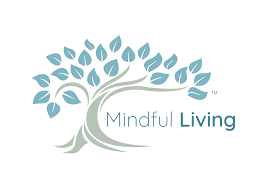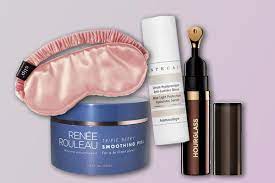Expressing Gratitude: The Power of Thank You Gifts in Building Lasting Connections
Expressing gratitude is a beautiful gesture that holds immense power. It not only strengthens relationships but also spreads positivity and happiness. One of the most effective ways to show appreciation is by giving thank you gifts.
Thank you gifts are a tangible representation of our gratitude, allowing us to express our heartfelt thanks in a thoughtful and meaningful way. They serve as tokens of appreciation, acknowledging the kindness, support, or assistance we have received from someone.
When it comes to selecting the perfect thank you gift, there are countless options available to suit every individual and occasion. From personalized items that reflect the recipient’s interests or hobbies to elegant and timeless pieces that exude sophistication, the choices are endless.
The beauty of thank you gifts lies in their ability to convey emotions without words. A well-chosen gift can speak volumes about our appreciation and leave a lasting impression on the recipient. It shows that we have taken the time and effort to carefully select something special for them.
Thank you gifts also have the power to strengthen relationships. They create a sense of connection and reciprocity between individuals, fostering a bond built on mutual respect and gratitude. Whether it’s expressing thanks to a friend, colleague, family member, or even a service provider, these gestures can go a long way in nurturing positive connections.
Moreover, thank you gifts have the potential to inspire others to pay it forward. When someone receives a thoughtful token of appreciation, they are more likely to be motivated to extend kindness and help others in return. This ripple effect can create a chain of gratitude that spreads throughout communities and beyond.
In today’s fast-paced world, where everyone is constantly juggling multiple responsibilities, taking the time to say thank you through meaningful gifts is even more important. It shows that we value and acknowledge the efforts made by others on our behalf.
So next time someone goes above and beyond for you or touches your life in a special way, consider expressing your gratitude with a thoughtful thank you gift. Whether it’s a small gesture or a grand gesture, the act of giving will not only bring joy to the recipient but also fill your heart with warmth and gratitude. Remember, gratitude is contagious, so let’s spread it one gift at a time.
6 Tips for Choosing the Perfect Thank You Gifts in English (UK)
- Consider the recipient’s interests
- Personalize it
- Quality over quantity
- Practicality matters
- Support local businesses
- Avoid overly personal gifts
Consider the recipient’s interests
When it comes to choosing the perfect thank you gift, one important tip to keep in mind is to consider the recipient’s interests. Taking the time to understand their likes, hobbies, and preferences can make a world of difference in selecting a gift that truly resonates with them.
By considering the recipient’s interests, you show that you value and appreciate their individuality. It demonstrates that you have put thought into choosing something meaningful and tailored specifically for them.
For example, if your colleague is an avid reader, consider gifting them a bestselling book or a subscription to a literary magazine. If your friend loves cooking, a unique kitchen gadget or a cookbook from their favorite chef could be an excellent choice. By aligning the gift with their passions, you not only show your gratitude but also provide them with something they will genuinely enjoy and cherish.
Personalizing the gift based on their interests can also create a deeper connection between you and the recipient. It shows that you have taken the time to understand what makes them tick and have chosen something that aligns with their personality. This thoughtful gesture can strengthen your bond and leave a lasting impression.
Remember, it’s not about the monetary value of the gift but rather about the sentiment behind it. By considering the recipient’s interests, you demonstrate that you care about them as an individual and want to celebrate what brings them joy.
So next time you’re selecting a thank you gift, take a moment to think about what truly makes the recipient happy. Consider their hobbies, passions, or even recent conversations you’ve had with them. This small effort will go a long way in showing your appreciation in a way that is personal and meaningful.
Personalize it
When it comes to thank you gifts, one tip that can truly make a difference is to personalize it. Adding a personal touch to a gift not only shows that you’ve put thought and effort into selecting it, but also makes the recipient feel special and appreciated.
Personalization can take various forms, depending on the gift and the recipient. It could be as simple as engraving their initials or name on an item, or as elaborate as customizing a gift to reflect their unique interests or preferences.
One of the benefits of personalizing a thank you gift is that it creates a lasting memory. Every time the recipient sees or uses the personalized item, they will be reminded of your gratitude and the special connection you share. It adds an extra layer of sentimentality to the gift, making it more meaningful and cherished.
Another advantage of personalization is that it demonstrates your attentiveness towards the recipient’s individuality. By choosing something that reflects their personality, hobbies, or preferences, you show that you truly know and appreciate them. It goes beyond a generic thank you gift and shows that you’ve taken the time to consider what would bring them joy.
Personalized thank you gifts can also strengthen relationships. They create a sense of intimacy and closeness between individuals, fostering deeper connections. When someone receives a personalized gift, they feel seen and valued, which in turn strengthens trust and appreciation.
In today’s world where mass-produced items are abundant, personalized gifts stand out for their uniqueness. They show that you’ve gone above and beyond to find something truly special for the recipient. Whether it’s a monogrammed accessory or a customized photo album capturing precious memories shared together, these gifts become treasured keepsakes.
So when selecting a thank you gift, remember to personalize it. Consider what would make it unique and meaningful for the recipient. Whether through engraving, customizing, or adding personal touches, let your gratitude shine through in every detail. By personalizing your thank you gift, you’ll create a lasting impression and leave the recipient feeling truly appreciated.
Quality over quantity
When it comes to thank you gifts, it’s often said that quality matters more than quantity. While the gesture of giving a gift is important, the value lies in choosing something that truly reflects your gratitude and appreciation.
In a world where material possessions can sometimes overshadow the sentiment behind them, opting for quality over quantity can make all the difference. It shows that you have taken the time to carefully select a gift that holds significance and meaning.
Choosing a high-quality thank you gift demonstrates thoughtfulness and consideration. It conveys the message that you value the recipient and their efforts enough to invest in something special. Whether it’s a beautifully crafted item or an experience that they will cherish, quality gifts have a lasting impact.
Quality gifts also have a way of standing out from the crowd. They are often unique, well-made, and designed to be enjoyed for years to come. By choosing something of high quality, you ensure that your thank you gift will be remembered and appreciated long after it is received.
Furthermore, quality gifts showcase your own standards and values. They reflect your attention to detail and desire to give something meaningful. This level of thoughtfulness can deepen connections with others and strengthen relationships.
It’s important to remember that quality doesn’t necessarily mean extravagant or expensive. A small but well-chosen gift can carry just as much meaning as a lavish one. It’s about selecting something that aligns with the recipient’s interests, preferences, or needs – something they will genuinely appreciate.
In a world filled with material abundance, it’s easy to get caught up in quantity rather than focusing on what truly matters – genuine appreciation and gratitude. So next time you want to express thanks through a gift, remember that it’s not about how many items you give but rather about selecting one high-quality item that speaks volumes about your appreciation.
Practicality matters
When it comes to choosing thank you gifts, practicality matters. While sentimental and decorative gifts have their charm, opting for something that is useful and functional can make a lasting impact.
Practical thank you gifts serve a dual purpose. Not only do they express gratitude, but they also offer practical value to the recipient in their day-to-day life. Whether it’s a kitchen gadget that simplifies cooking, a stylish notebook for jotting down thoughts, or a versatile tool that solves everyday problems, these gifts show that you have taken the time to consider the recipient’s needs.
By selecting practical gifts, you ensure that your token of appreciation becomes an integral part of the recipient’s routine. Every time they use or interact with the gift, they will be reminded of your thoughtfulness and gratitude. This creates an ongoing connection and strengthens the bond between both parties.
Furthermore, practical gifts demonstrate your understanding of the recipient’s lifestyle and preferences. It shows that you have paid attention to their needs and chosen something that aligns with their interests. This level of consideration makes the gift even more special and meaningful.
Another advantage of practical thank you gifts is their versatility. They can be given in various situations – whether it’s thanking a colleague for their support on a project or expressing gratitude to a friend who has been there during challenging times. Practical gifts are universally appreciated and can be tailored to suit different individuals and occasions.
Lastly, practicality extends beyond immediate use. It also encompasses durability and longevity. Opting for well-made items ensures that your gift will stand the test of time, becoming a reliable companion for years to come.
In conclusion, when selecting thank you gifts, remember that practicality matters. Choosing something useful and functional not only demonstrates your thoughtfulness but also ensures that your token of appreciation becomes an integral part of the recipient’s life. By combining gratitude with practicality, you create meaningful connections that last long after the gift is received.
Support local businesses
When it comes to choosing thank you gifts, one tip that holds great significance is to support local businesses. In today’s globalized world, where big corporations dominate the market, it’s essential to recognize and appreciate the value that local businesses bring to our communities.
By opting for thank you gifts from local businesses, we not only show our gratitude but also contribute to the growth and sustainability of our local economy. These businesses are often run by passionate individuals who pour their heart and soul into their work, offering unique products and services that reflect the essence of our community.
Choosing a thank you gift from a local business adds a personal touch to your gesture. It demonstrates that you have taken the time to seek out something special, supporting artisans and entrepreneurs who put their creativity and expertise into every item they create. From handmade crafts to locally sourced products, these gifts carry a sense of authenticity and pride.
Supporting local businesses also helps in preserving the distinct character of our communities. They add vibrancy and diversity, offering an alternative to generic mass-produced items. By choosing their products for your thank you gifts, you celebrate the rich cultural heritage and traditions that make your locality unique.
Furthermore, supporting local businesses fosters a sense of connection within our community. When we choose to buy from them, we build relationships with the people behind these enterprises. We get to know their stories, their dreams, and aspirations. This creates a bond that goes beyond a simple transaction – it’s about supporting each other’s growth and success.
In times of economic uncertainty or crisis, local businesses often face significant challenges. By consciously selecting them for your thank you gifts, you become an agent of change in helping them thrive amidst adversity. Your support can make a real difference in sustaining livelihoods and ensuring the survival of these cherished establishments.
So when it comes to expressing gratitude through thank you gifts, let us remember the impact we can make by supporting local businesses. Let’s celebrate the talent, creativity, and entrepreneurial spirit that exists within our communities. By doing so, we not only show appreciation but also contribute to the vitality and prosperity of our local economies.
Avoid overly personal gifts
When it comes to selecting thank you gifts, one important tip to keep in mind is to avoid overly personal gifts. While the intention behind giving a personal gift may be genuine, it’s essential to consider the recipient’s preferences and boundaries.
Choosing a gift that is too personal can potentially make the recipient feel uncomfortable or overwhelmed. It’s crucial to strike a balance between thoughtfulness and appropriateness when expressing gratitude.
Instead, opt for gifts that are universally appreciated and can be enjoyed by anyone. Consider items such as gourmet treats, scented candles, or beautifully crafted stationery. These types of gifts are often well-received and can be enjoyed by a wide range of individuals.
Another option is to choose practical gifts that are useful in everyday life. This way, the recipient can benefit from your gesture regularly. Think about items like stylish water bottles, organizers, or even a subscription to a useful service.
If you still want to add a personal touch to your gift, consider customizing it with a heartfelt message or by choosing something that aligns with the recipient’s general interests or hobbies. This way, you acknowledge their individuality without crossing any boundaries.
Remember, the primary goal of giving thank you gifts is to express gratitude and appreciation genuinely. By avoiding overly personal gifts, you ensure that your gesture is well-received and leaves a positive impression on the recipient.
So next time you’re selecting a thank you gift, take into account this valuable tip – keep it thoughtful but not overly personal. Your gratitude will shine through in your choice of gift while respecting the recipient’s comfort level.






